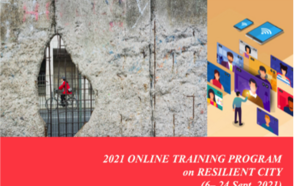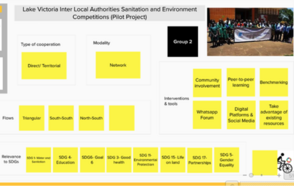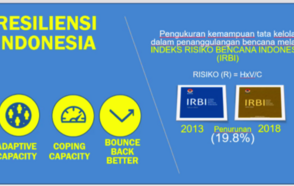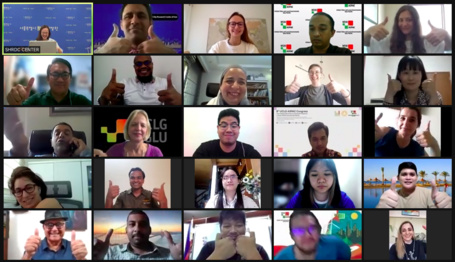
Participants smile with their thumbs during the last live session of the Resilient City training program.
Between September 6-26, participants from 22 cities took part in the Resilient City training program coordinated by the Seoul Metropolitan Government, UCLG, and Metropolis, with the support of UCLG-ASPAC.
An innovative online format allowed participants to gain a deep understanding of Seoul’s own challenges, solutions and policy processes at their own pace, while engaging in lively discussions with other participants reflecting on the concepts and ideas presented regarding local resilience building and disaster risk reduction.
“Intriguing, insightful and informative. I truly enjoyed the Resilient City course and the thoughtful learnings through videos, webinars, simulation group exercises, and final Action Plan development for cities. Your learning platform provided a timely & professional course in enhancing current challenges which every city needs to confront in this action decade of 2021-2030 for Paris Agreement, SDG's and the Sendai Framework for Disaster Risk Reduction (SFDRR).“ City officer from South Asia
The three-weeks training combined self-paced video lectures introducing Seoul’s own experience and resilience strategy, with interactive live sessions where participants were able to participate in discussions and peer-learning. Two gaming sessions using the dynamics developed for the Resilience Learning Modules allowed simulation, reflection and more interaction based on participants’ own expertise, while another one brought together good practices from Berlin, Istanbul and Tehran to understand different contexts and approaches. 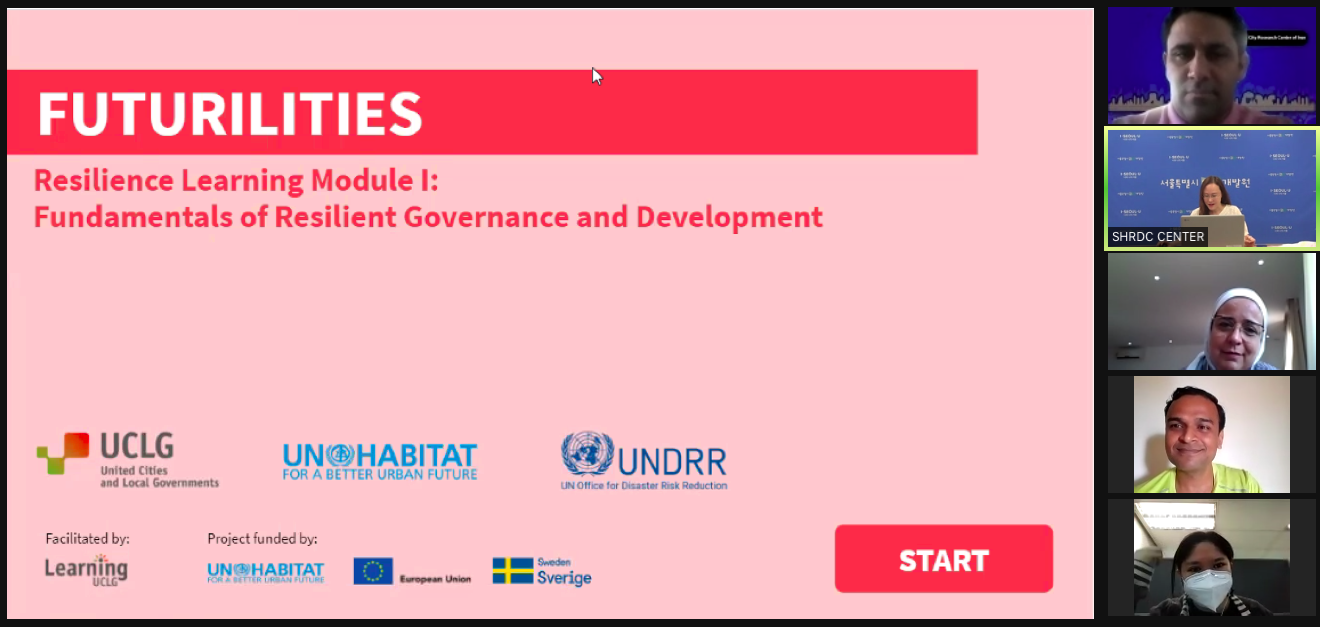
To close the cycle, the participants developed Action Plans for their own cities. Those plans reflect the commitment to resilience and feasible activities, and also the interest for engaging more in the municipal learning community.
“Exercises like this one are the best way to learn about decision-making for the long-term. It has shown us that citizens have to be more engaged. We have to co-create. Small and medium entrepreneurs play a major role in creating a higher resilience community.” City officer from West Asia
The Seoul Metropolitan Government was designated as a role model city by the United Nations Office for Disaster Risk Reduction (UNDRR) in 2020, recognizing its efforts to counter climate and disaster risk, as well as its innovative and sustainable approaches including the use of ICT and Smart City technologies, steps to adhere to the Paris Agreement on climate change such as backing solar-powered and eco-friendly automobiles, as well as voluntary efforts by the public and private sector to resolve safety issues. The city is committed toexplore and present its own best cases, and engage in global cooperation and solidarity for making better resilient and sustainable cities, as shown by this training program and its participation in the new Making Cities Resilient 2030 (MCR2030) initiative.
“In our group, the most pressing issue was financing. That’s what happens in my country: without budget, we can’t invest on resilience in the longer-term because first we must deliver basic services. But if resilience is high, we can save a lot of people in the face of disasters. Resilience is not an expense, but an investment.” City officer from East Asia
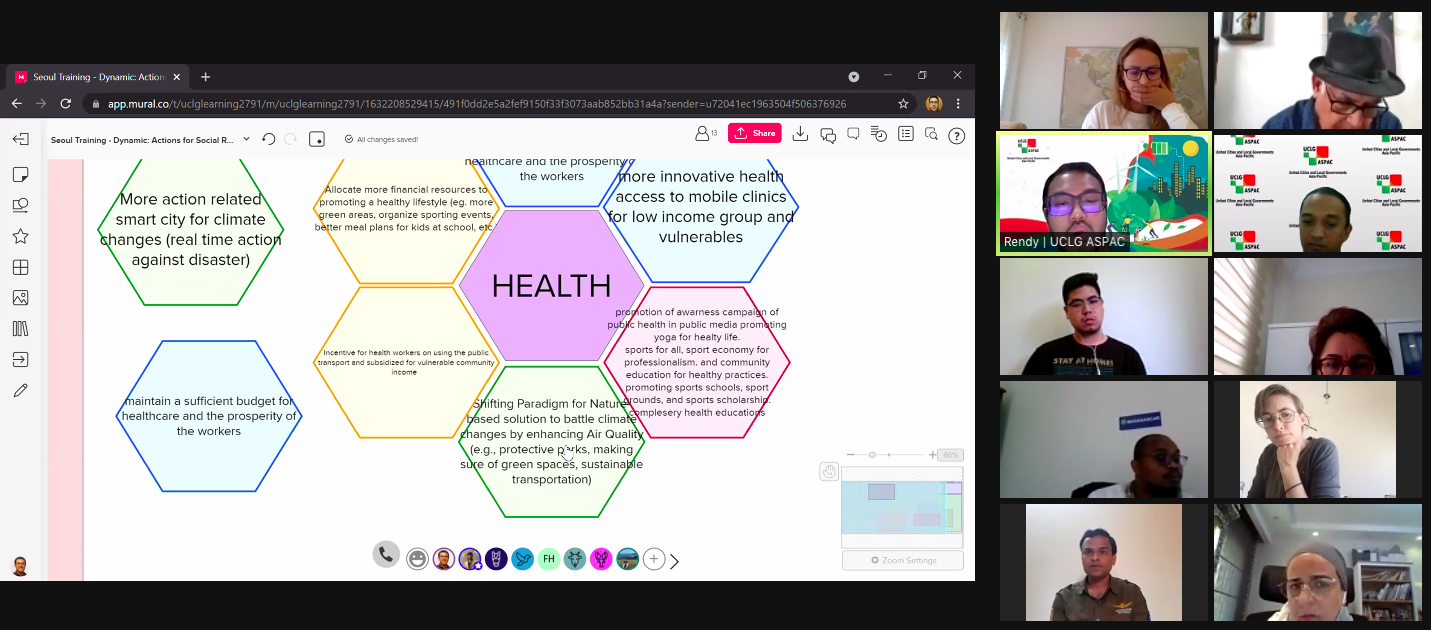
Bringing together expertise, tools, and resources from the different partners involved using self-paced learning and live sessions, proved to be key and inspiring for further work. The format can be easily adapted around the experiences of other cities, and together with the learning games and engaging dynamics presented in the Resilience Learning Modules, can provide new opportunities for learning and cooperation among cities, regions and partners in our network as we continue bringing the most out of new digital tools available to connect us.











